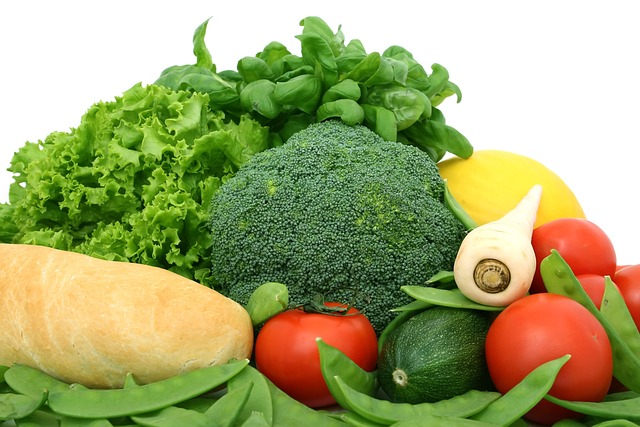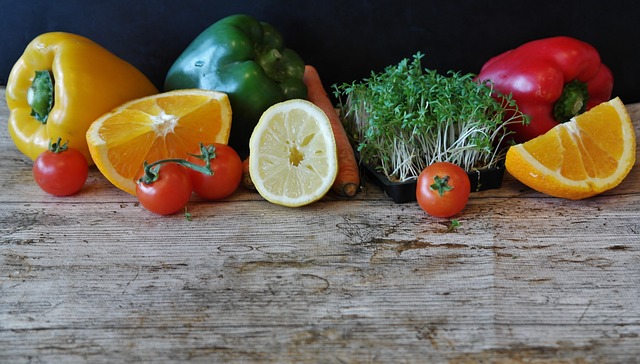Top 20 Nutrient-Rich Foods for Optimal Health
In our modern world, the pursuit of optimal health has become a paramount concern for many. While exercise and lifestyle choices are undeniably important, the cornerstone of good health lies in the foods we consume. Nutrient-rich foods provide the essential building blocks our bodies need to function optimally, promoting vitality, longevity, and overall well-being. To empower you on your journey towards better health, we've curated a comprehensive list of the top 20 nutrient-rich foods that can revolutionize your diet and transform your health.
1. Spinach:
Spinach is a nutritional powerhouse, brimming with iron, vitamins A, C, and K. This leafy green supports bone health, boosts immunity, and contributes to healthy vision.
2. Salmon:
Rich in omega-3 fatty acids, protein, and vitamin D, salmon is a superfood for heart health and brain function. It also possesses anti-inflammatory properties, promoting overall wellness.
3. Blueberries:
Packed with antioxidants, fiber, and vitamins C and K, blueberries are renowned for their anti-aging effects and cognitive benefits. They also promote gut health and support digestion.
4. Quinoa:
As a complete protein source, quinoa is an excellent option for vegetarians and vegans. It's loaded with fiber, iron, magnesium, and B vitamins, providing sustained energy and promoting muscle health.

5. Broccoli:
This cruciferous vegetable is a nutritional powerhouse, containing vitamin C, fiber, and sulforaphane, a potent compound with cancer-fighting properties. Broccoli supports detoxification and overall health.
6. Sweet Potatoes:
High in fiber, vitamins A and C, and beta-carotene, sweet potatoes are a nutritious carbohydrate choice that supports skin health, immunity, and vision.
7. Almonds:
Almonds are packed with healthy fats, protein, fiber, and vitamin E. They promote heart health, aid in weight management, and provide sustained energy for an active lifestyle.
8. Greek Yogurt:
Rich in probiotics, protein, calcium, and B vitamins, Greek yogurt supports gut health, aids in digestion, and strengthens bones and muscles.
9. Kale:
Another leafy green powerhouse, kale is loaded with vitamins A, C, and K, as well as antioxidants like lutein and zeaxanthin, which support eye health and protect against age-related macular degeneration.
10. Oats:
High in fiber, manganese, and antioxidants, oats are a heart-healthy whole grain that supports blood sugar regulation, promotes satiety, and aids in digestion.
11. Avocado:
Avocados are rich in monounsaturated fats, fiber, potassium, and vitamins K, E, and B. They support heart health, brain function, and skin health, and are a versatile addition to any diet.
12. Chia Seeds:
These tiny seeds are a nutritional powerhouse, packed with omega-3 fatty acids, fiber, protein, and antioxidants. They support hydration, aid in weight loss, and promote digestive health.

13. Oranges:
Oranges are abundant in vitamin C, fiber, and antioxidants, making them a nutritional powerhouse. They boost immunity, support collagen production, and contribute to healthy skin and hair.
14. Bell Peppers:
High in vitamin C, antioxidants, and fiber, bell peppers support immune function, promote eye health, and protect against cellular damage.
15. Black Beans:
A great source of plant-based protein, fiber, iron, and folate, black beans support heart health, aid in digestion, and regulate blood sugar levels.
16. Eggs:
Eggs are a complete protein source, rich in vitamins B12, D, and choline. They support brain health, bone strength, and metabolism, making them a nutritious addition to any meal.
17. Salad Greens:
Low in calories but high in vitamins A, C, and K, as well as antioxidants, salad greens support hydration, aid in digestion, and promote overall health.
18. Wild Rice:
Nutrient-rich and gluten-free, wild rice is high in fiber, protein, vitamins, and minerals. It supports heart health, aids in digestion, and provides sustained energy.
19. Walnuts:
Walnuts are rich in omega-3 fatty acids, protein, fiber, and antioxidants. They support heart health, brain function, and may reduce the risk of certain diseases.
20. Garlic:
Garlic is packed with sulfur compounds, vitamins C and B6, and antioxidants. It supports immune function, heart health, and has anti-inflammatory properties.
Incorporating these nutrient-rich foods into your diet can have a profound impact on your health and vitality. By making mindful choices and prioritizing whole, unprocessed foods, you can nourish your body from the inside out. Remember to enjoy a balanced diet that includes a variety of these nutrient powerhouses, and consult with a healthcare professional or registered dietitian for personalized guidance. With these foods as your allies, you can embark on a journey towards optimal health and well-being, enriching your life in countless ways.

Frequently Asked Questions (FAQ) on Top 20 Nutrient-Rich Foods for Optimal Health
1. Why are nutrient-rich foods essential for optimal health?
Nutrient-rich foods are vital for sustaining optimal health as they supply our bodies with essential vitamins, minerals, and antioxidants necessary for various bodily functions. They play a pivotal role in bolstering immunity, supporting heart health, enhancing cognitive function, and nurturing overall well-being.
2. How were the top 20 nutrient-rich foods chosen for inclusion in the article?
The selection process for the top 20 nutrient-rich foods involved assessing their nutrient density, scientific evidence supporting their health benefits, and versatility in culinary usage. These foods were carefully chosen based on their exceptional nutritional profiles and their ability to contribute to overall health and vitality.
3. Are these foods suitable for individuals with specific dietary preferences or restrictions?
Yes, the majority of the foods listed are suitable for various dietary patterns, including vegetarian, vegan, gluten-free, and dairy-free diets. However, individuals with specific allergies or intolerances should exercise caution and choose alternatives accordingly. Seeking guidance from a healthcare professional or registered dietitian can offer personalized recommendations.
4. How can I incorporate these nutrient-rich foods into my daily diet?
There are numerous ways to integrate nutrient-rich foods into your meals. You can enjoy them raw in salads, blend them into smoothies, roast or steam them as side dishes, or incorporate them into soups, stews, and stir-fries. Experimenting with different cooking techniques and flavor combinations can help you discover enjoyable ways to incorporate these foods into your diet.
5. What are some tips for selecting and storing these foods?
When shopping for nutrient-rich foods, prioritize fresh, whole options whenever possible, and consider opting for organic choices to minimize exposure to pesticides. Proper storage is crucial for maintaining freshness—store perishable items in the refrigerator and pantry staples in a cool, dry place in airtight containers to prevent spoilage.

6. Can I still achieve optimal health if I cannot access or afford some of these foods?
While incorporating a diverse range of nutrient-rich foods is ideal, optimal health is achievable through overall dietary patterns rather than individual food items. If access or affordability is a concern, focus on making the best choices available within your means, emphasizing whole, unprocessed foods and striving for dietary variety and balance.
7. Are there any potential risks associated with consuming these foods?
For the majority of individuals, consuming nutrient-rich foods is safe and beneficial. However, some people may experience allergies or intolerances to certain foods, so it's important to be mindful of your body's responses and avoid foods that trigger adverse reactions. Additionally, consult with a healthcare professional if you have concerns about potential interactions with medications or medical conditions.
8. How soon can I expect to experience the benefits of incorporating these foods into my diet?
The timeline for experiencing the benefits of incorporating nutrient-rich foods into your diet can vary depending on factors such as individual health status, dietary habits, and lifestyle factors. While certain individuals might observe prompt improvements, others may necessitate a longer duration to experience noticeable changes. The essence lies in maintaining consistency, emphasizing the importance of incorporating sustainable dietary adjustments for enduring health advantages.
9. Are there specific recommendations for portion sizes or serving frequencies for these foods?
Portion sizes and serving frequencies for nutrient-rich foods depend on individual calorie needs, dietary goals, and lifestyle factors. As a general guideline, aim to include a variety of these foods in your meals and snacks throughout the day, paying attention to portion sizes and listening to your body's hunger and fullness cues. Seeking advice from a licensed nutrition expert can offer tailored recommendations aligned with your specific needs and objectives.
10. Where can I find additional resources or support for incorporating these foods into my diet?
There are various resources available to help you incorporate nutrient-rich foods into your diet, including cookbooks, online recipes, nutrition blogs, and community support groups. Additionally, seeking guidance from a registered dietitian or nutritionist can offer personalized support and recommendations tailored to your individual needs and preferences.
Powered by Froala Editor





Leave a Reply